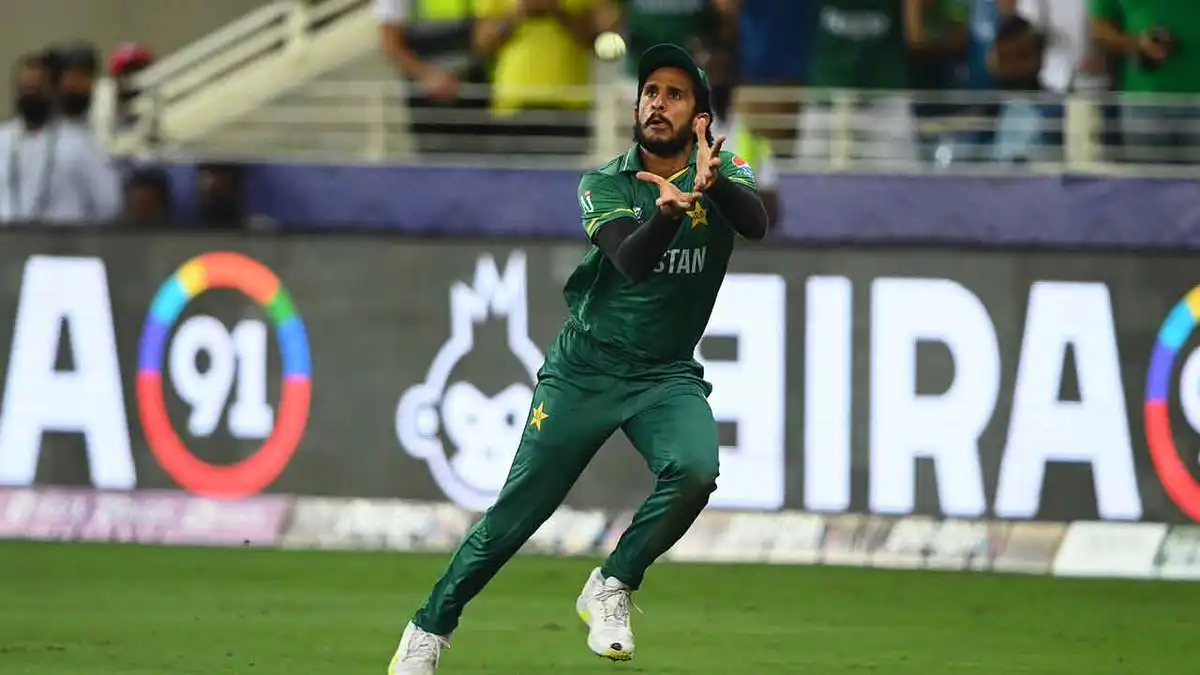EditionSelect Add Row Above Add Row Below Add Column Right Add Column Left Delete Row Delete Column Delete Table Select Add Row Above Add Row Below Add Column Right Add Column Left Delete Row Delete Column Delete Table
YearSelect Add Row Above Add Row Below Add Column Right Add Column Left Delete Row Delete Column Delete Table Select Add Row Above Add Row Below Add Column Right Add Column Left Delete Row Delete Column Delete Table
Captain Select Add Row Above Add Row Below Add Column Right Add Column Left Delete Row Delete Column Delete Table
WinnerSelect Add Row Above Add Row Below Add Column Right Add Column Left Delete Row Delete Column Delete Table Select Add Row Above Add Row Below Add Column Right Add Column Left Delete Row Delete Column Delete Table
Won bySelect Add Row Above Add Row Below Add Column Right Add Column Left Delete Row Delete Column Delete Table Select Add Row Above Add Row Below Add Column Right Add Column Left Delete Row Delete Column Delete Table
Runner-upSelect Add Row Above Add Row Below Add Column Right Add Column Left Delete Row Delete Column Delete Table Select Add Row Above Add Row Below Add Column Right Add Column Left Delete Row Delete Column Delete Table
1stSelect Add Row Above Add Row Below Add Column Right Add Column Left Delete Row Delete Column Delete Table Select Add Row Above Add Row Below Add Column Right Add Column Left Delete Row Delete Column Delete Table 1984Select Add Row Above Add Row Below Add Column Right Add Column Left Delete Row Delete Column Delete Table Select Add Row Above Add Row Below Add Column Right Add Column Left Delete Row Delete Column Delete Table Sunil Gavaskar Select Add Row Above Add Row Below Add Column Right Add Column Left Delete Row Delete Column Delete Table IndiaSelect Add Row Above Add Row Below Add Column Right Add Column Left Delete Row Delete Column Delete Table Select Add Row Above Add Row Below Add Column Right Add Column Left Delete Row Delete Column Delete Table N/ASelect Add Row Above Add Row Below Add Column Right Add Column Left Delete Row Delete Column Delete Table Select Add Row Above Add Row Below Add Column Right Add Column Left Delete Row Delete Column Delete Table Sri LankaSelect Add Row Above Add Row Below Add Column Right Add Column Left Delete Row Delete Column Delete Table Select Add Row Above Add Row Below Add Column Right Add Column Left Delete Row Delete Column Delete Table 2ndSelect Add Row Above Add Row Below Add Column Right Add Column Left Delete Row Delete Column Delete Table Select Add Row Above Add Row Below Add Column Right Add Column Left Delete Row Delete Column Delete Table 1986Select Add Row Above Add Row Below Add Column Right Add Column Left Delete Row Delete Column Delete Table Select Add Row Above Add Row Below Add Column Right Add Column Left Delete Row Delete Column Delete Table Duleep Mendis Select Add Row Above Add Row Below Add Column Right Add Column Left Delete Row Delete Column Delete Table Sri LankaSelect Add Row Above Add Row Below Add Column Right Add Column Left Delete Row Delete Column Delete Table Select Add Row Above Add Row Below Add Column Right Add Column Left Delete Row Delete Column Delete Table 5 wicketsSelect Add Row Above Add Row Below Add Column Right Add Column Left Delete Row Delete Column Delete Table Select Add Row Above Add Row Below Add Column Right Add Column Left Delete Row Delete Column Delete Table PakistanSelect Add Row Above Add Row Below Add Column Right Add Column Left Delete Row Delete Column Delete Table Select Add Row Above Add Row Below Add Column Right Add Column Left Delete Row Delete Column Delete Table 3rdSelect Add Row Above Add Row Below Add Column Right Add Column Left Delete Row Delete Column Delete Table Select Add Row Above Add Row Below Add Column Right Add Column Left Delete Row Delete Column Delete Table 1988Select Add Row Above Add Row Below Add Column Right Add Column Left Delete Row Delete Column Delete Table Select Add Row Above Add Row Below Add Column Right Add Column Left Delete Row Delete Column Delete Table Dilip Vengsarkar Select Add Row Above Add Row Below Add Column Right Add Column Left Delete Row Delete Column Delete Table IndiaSelect Add Row Above Add Row Below Add Column Right Add Column Left Delete Row Delete Column Delete Table Select Add Row Above Add Row Below Add Column Right Add Column Left Delete Row Delete Column Delete Table 6 wicketsSelect Add Row Above Add Row Below Add Column Right Add Column Left Delete Row Delete Column Delete Table Select Add Row Above Add Row Below Add Column Right Add Column Left Delete Row Delete Column Delete Table Sri LankaSelect Add Row Above Add Row Below Add Column Right Add Column Left Delete Row Delete Column Delete Table Select Add Row Above Add Row Below Add Column Right Add Column Left Delete Row Delete Column Delete Table 4thSelect Add Row Above Add Row Below Add Column Right Add Column Left Delete Row Delete Column Delete Table Select Add Row Above Add Row Below Add Column Right Add Column Left Delete Row Delete Column Delete Table 1990-91Select Add Row Above Add Row Below Add Column Right Add Column Left Delete Row Delete Column Delete Table Select Add Row Above Add Row Below Add Column Right Add Column Left Delete Row Delete Column Delete Table Mohammad Azharuddin Select Add Row Above Add Row Below Add Column Right Add Column Left Delete Row Delete Column Delete Table IndiaSelect Add Row Above Add Row Below Add Column Right Add Column Left Delete Row Delete Column Delete Table Select Add Row Above Add Row Below Add Column Right Add Column Left Delete Row Delete Column Delete Table 7 wicketsSelect Add Row Above Add Row Below Add Column Right Add Column Left Delete Row Delete Column Delete Table Select Add Row Above Add Row Below Add Column Right Add Column Left Delete Row Delete Column Delete Table Sri LankaSelect Add Row Above Add Row Below Add Column Right Add Column Left Delete Row Delete Column Delete Table Select Add Row Above Add Row Below Add Column Right Add Column Left Delete Row Delete Column Delete Table 5thSelect Add Row Above Add Row Below Add Column Right Add Column Left Delete Row Delete Column Delete Table Select Add Row Above Add Row Below Add Column Right Add Column Left Delete Row Delete Column Delete Table 1995Select Add Row Above Add Row Below Add Column Right Add Column Left Delete Row Delete Column Delete Table Select Add Row Above Add Row Below Add Column Right Add Column Left Delete Row Delete Column Delete Table Mohammad AzharuddinSelect Add Row Above Add Row Below Add Column Right Add Column Left Delete Row Delete Column Delete Table IndiaSelect Add Row Above Add Row Below Add Column Right Add Column Left Delete Row Delete Column Delete Table Select Add Row Above Add Row Below Add Column Right Add Column Left Delete Row Delete Column Delete Table 8 wicketsSelect Add Row Above Add Row Below Add Column Right Add Column Left Delete Row Delete Column Delete Table Select Add Row Above Add Row Below Add Column Right Add Column Left Delete Row Delete Column Delete Table Sri LankaSelect Add Row Above Add Row Below Add Column Right Add Column Left Delete Row Delete Column Delete Table Select Add Row Above Add Row Below Add Column Right Add Column Left Delete Row Delete Column Delete Table 6thSelect Add Row Above Add Row Below Add Column Right Add Column Left Delete Row Delete Column Delete Table Select Add Row Above Add Row Below Add Column Right Add Column Left Delete Row Delete Column Delete Table 1997Select Add Row Above Add Row Below Add Column Right Add Column Left Delete Row Delete Column Delete Table Select Add Row Above Add Row Below Add Column Right Add Column Left Delete Row Delete Column Delete Table Arjuna Ranatunga Select Add Row Above Add Row Below Add Column Right Add Column Left Delete Row Delete Column Delete Table Sri LankaSelect Add Row Above Add Row Below Add Column Right Add Column Left Delete Row Delete Column Delete Table Select Add Row Above Add Row Below Add Column Right Add Column Left Delete Row Delete Column Delete Table 8 wicketsSelect Add Row Above Add Row Below Add Column Right Add Column Left Delete Row Delete Column Delete Table Select Add Row Above Add Row Below Add Column Right Add Column Left Delete Row Delete Column Delete Table IndiaSelect Add Row Above Add Row Below Add Column Right Add Column Left Delete Row Delete Column Delete Table Select Add Row Above Add Row Below Add Column Right Add Column Left Delete Row Delete Column Delete Table 7thSelect Add Row Above Add Row Below Add Column Right Add Column Left Delete Row Delete Column Delete Table Select Add Row Above Add Row Below Add Column Right Add Column Left Delete Row Delete Column Delete Table 2000Select Add Row Above Add Row Below Add Column Right Add Column Left Delete Row Delete Column Delete Table Select Add Row Above Add Row Below Add Column Right Add Column Left Delete Row Delete Column Delete Table Moin Khan Select Add Row Above Add Row Below Add Column Right Add Column Left Delete Row Delete Column Delete Table PakistanSelect Add Row Above Add Row Below Add Column Right Add Column Left Delete Row Delete Column Delete Table Select Add Row Above Add Row Below Add Column Right Add Column Left Delete Row Delete Column Delete Table 39 runsSelect Add Row Above Add Row Below Add Column Right Add Column Left Delete Row Delete Column Delete Table Select Add Row Above Add Row Below Add Column Right Add Column Left Delete Row Delete Column Delete Table Sri LankaSelect Add Row Above Add Row Below Add Column Right Add Column Left Delete Row Delete Column Delete Table Select Add Row Above Add Row Below Add Column Right Add Column Left Delete Row Delete Column Delete Table 8thSelect Add Row Above Add Row Below Add Column Right Add Column Left Delete Row Delete Column Delete Table Select Add Row Above Add Row Below Add Column Right Add Column Left Delete Row Delete Column Delete Table 2004Select Add Row Above Add Row Below Add Column Right Add Column Left Delete Row Delete Column Delete Table Select Add Row Above Add Row Below Add Column Right Add Column Left Delete Row Delete Column Delete Table Marvan Atapattu Select Add Row Above Add Row Below Add Column Right Add Column Left Delete Row Delete Column Delete Table Sri LankaSelect Add Row Above Add Row Below Add Column Right Add Column Left Delete Row Delete Column Delete Table Select Add Row Above Add Row Below Add Column Right Add Column Left Delete Row Delete Column Delete Table 25 runsSelect Add Row Above Add Row Below Add Column Right Add Column Left Delete Row Delete Column Delete Table Select Add Row Above Add Row Below Add Column Right Add Column Left Delete Row Delete Column Delete Table IndiaSelect Add Row Above Add Row Below Add Column Right Add Column Left Delete Row Delete Column Delete Table Select Add Row Above Add Row Below Add Column Right Add Column Left Delete Row Delete Column Delete Table 9thSelect Add Row Above Add Row Below Add Column Right Add Column Left Delete Row Delete Column Delete Table Select Add Row Above Add Row Below Add Column Right Add Column Left Delete Row Delete Column Delete Table 2008Select Add Row Above Add Row Below Add Column Right Add Column Left Delete Row Delete Column Delete Table Select Add Row Above Add Row Below Add Column Right Add Column Left Delete Row Delete Column Delete Table Mahela Jayawardene Select Add Row Above Add Row Below Add Column Right Add Column Left Delete Row Delete Column Delete Table Sri LankaSelect Add Row Above Add Row Below Add Column Right Add Column Left Delete Row Delete Column Delete Table Select Add Row Above Add Row Below Add Column Right Add Column Left Delete Row Delete Column Delete Table 100 runsSelect Add Row Above Add Row Below Add Column Right Add Column Left Delete Row Delete Column Delete Table Select Add Row Above Add Row Below Add Column Right Add Column Left Delete Row Delete Column Delete Table IndiaSelect Add Row Above Add Row Below Add Column Right Add Column Left Delete Row Delete Column Delete Table Select Add Row Above Add Row Below Add Column Right Add Column Left Delete Row Delete Column Delete Table 10thSelect Add Row Above Add Row Below Add Column Right Add Column Left Delete Row Delete Column Delete Table Select Add Row Above Add Row Below Add Column Right Add Column Left Delete Row Delete Column Delete Table 2010Select Add Row Above Add Row Below Add Column Right Add Column Left Delete Row Delete Column Delete Table Select Add Row Above Add Row Below Add Column Right Add Column Left Delete Row Delete Column Delete Table Ms Dhoni Select Add Row Above Add Row Below Add Column Right Add Column Left Delete Row Delete Column Delete Table IndiaSelect Add Row Above Add Row Below Add Column Right Add Column Left Delete Row Delete Column Delete Table Select Add Row Above Add Row Below Add Column Right Add Column Left Delete Row Delete Column Delete Table 81 runsSelect Add Row Above Add Row Below Add Column Right Add Column Left Delete Row Delete Column Delete Table Select Add Row Above Add Row Below Add Column Right Add Column Left Delete Row Delete Column Delete Table Sri LankaSelect Add Row Above Add Row Below Add Column Right Add Column Left Delete Row Delete Column Delete Table Select Add Row Above Add Row Below Add Column Right Add Column Left Delete Row Delete Column Delete Table 11thSelect Add Row Above Add Row Below Add Column Right Add Column Left Delete Row Delete Column Delete Table Select Add Row Above Add Row Below Add Column Right Add Column Left Delete Row Delete Column Delete Table 2012Select Add Row Above Add Row Below Add Column Right Add Column Left Delete Row Delete Column Delete Table Select Add Row Above Add Row Below Add Column Right Add Column Left Delete Row Delete Column Delete Table Misbah-ul-Haq Select Add Row Above Add Row Below Add Column Right Add Column Left Delete Row Delete Column Delete Table PakistanSelect Add Row Above Add Row Below Add Column Right Add Column Left Delete Row Delete Column Delete Table Select Add Row Above Add Row Below Add Column Right Add Column Left Delete Row Delete Column Delete Table 2 runsSelect Add Row Above Add Row Below Add Column Right Add Column Left Delete Row Delete Column Delete Table Select Add Row Above Add Row Below Add Column Right Add Column Left Delete Row Delete Column Delete Table BangladeshSelect Add Row Above Add Row Below Add Column Right Add Column Left Delete Row Delete Column Delete Table Select Add Row Above Add Row Below Add Column Right Add Column Left Delete Row Delete Column Delete Table 12thSelect Add Row Above Add Row Below Add Column Right Add Column Left Delete Row Delete Column Delete Table Select Add Row Above Add Row Below Add Column Right Add Column Left Delete Row Delete Column Delete Table 2014Select Add Row Above Add Row Below Add Column Right Add Column Left Delete Row Delete Column Delete Table Select Add Row Above Add Row Below Add Column Right Add Column Left Delete Row Delete Column Delete Table Angelo Mathews Select Add Row Above Add Row Below Add Column Right Add Column Left Delete Row Delete Column Delete Table Sri LankaSelect Add Row Above Add Row Below Add Column Right Add Column Left Delete Row Delete Column Delete Table Select Add Row Above Add Row Below Add Column Right Add Column Left Delete Row Delete Column Delete Table 5 wicketsSelect Add Row Above Add Row Below Add Column Right Add Column Left Delete Row Delete Column Delete Table Select Add Row Above Add Row Below Add Column Right Add Column Left Delete Row Delete Column Delete Table PakistanSelect Add Row Above Add Row Below Add Column Right Add Column Left Delete Row Delete Column Delete Table Select Add Row Above Add Row Below Add Column Right Add Column Left Delete Row Delete Column Delete Table 13thSelect Add Row Above Add Row Below Add Column Right Add Column Left Delete Row Delete Column Delete Table Select Add Row Above Add Row Below Add Column Right Add Column Left Delete Row Delete Column Delete Table 2016Select Add Row Above Add Row Below Add Column Right Add Column Left Delete Row Delete Column Delete Table Select Add Row Above Add Row Below Add Column Right Add Column Left Delete Row Delete Column Delete Table Ms Dhoni Select Add Row Above Add Row Below Add Column Right Add Column Left Delete Row Delete Column Delete Table IndiaSelect Add Row Above Add Row Below Add Column Right Add Column Left Delete Row Delete Column Delete Table Select Add Row Above Add Row Below Add Column Right Add Column Left Delete Row Delete Column Delete Table 8 wicketsSelect Add Row Above Add Row Below Add Column Right Add Column Left Delete Row Delete Column Delete Table Select Add Row Above Add Row Below Add Column Right Add Column Left Delete Row Delete Column Delete Table BangladeshSelect Add Row Above Add Row Below Add Column Right Add Column Left Delete Row Delete Column Delete Table Select Add Row Above Add Row Below Add Column Right Add Column Left Delete Row Delete Column Delete Table 14thSelect Add Row Above Add Row Below Add Column Right Add Column Left Delete Row Delete Column Delete Table Select Add Row Above Add Row Below Add Column Right Add Column Left Delete Row Delete Column Delete Table 2018Select Add Row Above Add Row Below Add Column Right Add Column Left Delete Row Delete Column Delete Table Select Add Row Above Add Row Below Add Column Right Add Column Left Delete Row Delete Column Delete Table Rohit Sharma Select Add Row Above Add Row Below Add Column Right Add Column Left Delete Row Delete Column Delete Table IndiaSelect Add Row Above Add Row Below Add Column Right Add Column Left Delete Row Delete Column Delete Table Select Add Row Above Add Row Below Add Column Right Add Column Left Delete Row Delete Column Delete Table 3 wicketsSelect Add Row Above Add Row Below Add Column Right Add Column Left Delete Row Delete Column Delete Table Select Add Row Above Add Row Below Add Column Right Add Column Left Delete Row Delete Column Delete Table BangladeshSelect Add Row Above Add Row Below Add Column Right Add Column Left Delete Row Delete Column Delete Table Select Add Row Above Add Row Below Add Column Right Add Column Left Delete Row Delete Column Delete Table 15thSelect Add Row Above Add Row Below Add Column Right Add Column Left Delete Row Delete Column Delete Table Select Add Row Above Add Row Below Add Column Right Add Column Left Delete Row Delete Column Delete Table 2022Select Add Row Above Add Row Below Add Column Right Add Column Left Delete Row Delete Column Delete Table Select Add Row Above Add Row Below Add Column Right Add Column Left Delete Row Delete Column Delete Table Dasun Shanaka Select Add Row Above Add Row Below Add Column Right Add Column Left Delete Row Delete Column Delete Table Sri LankaSelect Add Row Above Add Row Below Add Column Right Add Column Left Delete Row Delete Column Delete Table Select Add Row Above Add Row Below Add Column Right Add Column Left Delete Row Delete Column Delete Table 23 runsSelect Add Row Above Add Row Below Add Column Right Add Column Left Delete Row Delete Column Delete Table Select Add Row Above Add Row Below Add Column Right Add Column Left Delete Row Delete Column Delete Table PakistanSelect Add Row Above Add Row Below Add Column Right Add Column Left Delete Row Delete Column Delete Table Select Add Row Above Add Row Below Add Column Right Add Column Left Delete Row Delete Column Delete Table 16thSelect Add Row Above Add Row Below Add Column Right Add Column Left Delete Row Delete Column Delete Table Select Add Row Above Add Row Below Add Column Right Add Column Left Delete Row Delete Column Delete Table 2023Select Add Row Above Add Row Below Add Column Right Add Column Left Delete Row Delete Column Delete Table Select Add Row Above Add Row Below Add Column Right Add Column Left Delete Row Delete Column Delete Table Rohit SharmaSelect Add Row Above Add Row Below Add Column Right Add Column Left Delete Row Delete Column Delete Table IndiaSelect Add Row Above Add Row Below Add Column Right Add Column Left Delete Row Delete Column Delete Table Select Add Row Above Add Row Below Add Column Right Add Column Left Delete Row Delete Column Delete Table 10 wicketsSelect Add Row Above Add Row Below Add Column Right Add Column Left Delete Row Delete Column Delete Table Select Add Row Above Add Row Below Add Column Right Add Column Left Delete Row Delete Column Delete Table Sri LankaSelect Add Row Above Add Row Below Add Column Right Add Column Left Delete Row Delete Column Delete Table 17th Select Add Row Above Add Row Below Add Column Right Add Column Left Delete Row Delete Column Delete Table 2025Select Add Row Above Add Row Below Add Column Right Add Column Left Delete Row Delete Column Delete Table Suryakumar Yadav Select Add Row Above Add Row Below Add Column Right Add Column Left Delete Row Delete Column Delete Table IndiaSelect Add Row Above Add Row Below Add Column Right Add Column Left Delete Row Delete Column Delete Table 5 WicketsSelect Add Row Above Add Row Below Add Column Right Add Column Left Delete Row Delete Column Delete Table PakistanSelect Add Row Above Add Row Below Add Column Right Add Column Left Delete Row Delete Column Delete Table .jpg?type=hq) Asia Cup Winners List (Source: AFP)
Asia Cup Winners List (Source: AFP).jpg?type=mq) Rohit Sharma and Team India (Source:@SPORTYVISHAL,x.com)
Rohit Sharma and Team India (Source:@SPORTYVISHAL,x.com)


.jpg?type=mq)

